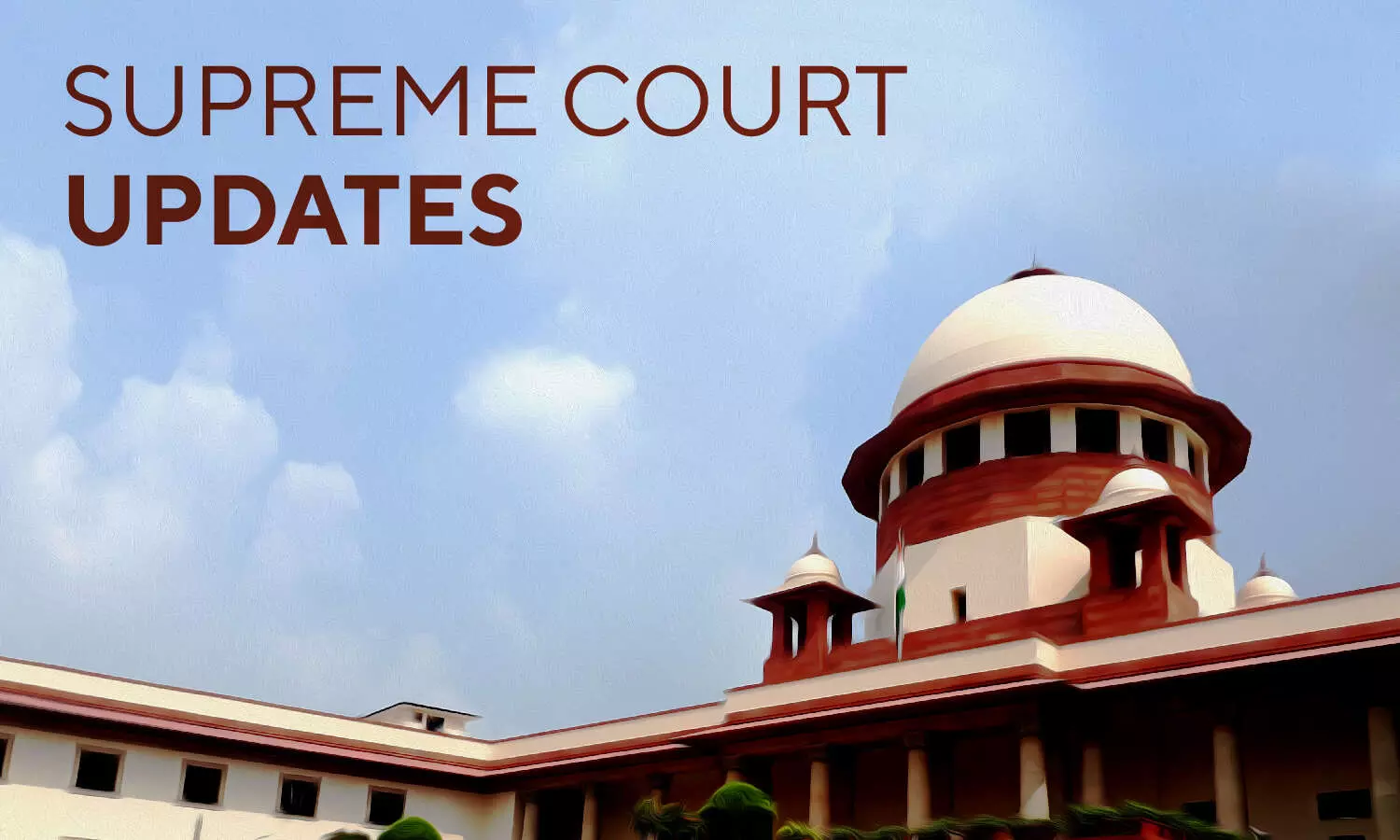
Money Laundering Premeditate Offence, Poses Threat To Country's Financial Health: Tushar Mehta Before Supreme Court
 |
|The Centre told the Supreme Court today that money laundering is a premeditated offence which never takes place in the heat of the moment and economic offences involving huge loss of public funds need to be viewed seriously as they pose a serious threat to the Country's financial health.
While hearing arguments on a batch of pleas concerning the interpretation of certain provisions of the Prevention of Money Laundering Act (PMLA), the Apex Court deliberated on Section 45 of the Act as well as section 436-A of the Code of Criminal Procedure (CrPC) and also on balancing the right of the accused.
While Section 45 of the PMLA deals with the aspect of offences to be cognisable and non-bailable, Section 436-A of the CrPC deals with maximum period for which an undertrial prisoner can be detained.
The experience is that the trials are not proceeding. The trials remain pending, investigation reports are not filed in time. All these are different logistical matters which have been experienced....," observed the Bench of Justice A M Khanwilkar, Justice Dinesh Maheshwari and Justice CT Ravikumar, adding, recently it was in public domain that persons accused of offence having seven-year of punishment have already undergone six years during the trial.
Now, if this is the state of affairs, then there has to be some balancing, said the Bench.
The Apex Court also observed that if there is a presumption about validity of a provision, there must be a presumption about upholding the rights of the accused also.
Solicitor General Tushar Mehta, appearing for the Centre, said the bench had put query about section 436-A.
He said that PMLA is a peculiar offence which is different from other serious offence which are classified separately like Maharashtra Control of Organised Crime Act (MCOCA).
Mehta said money laundering usually takes place cross borders and not within the bounds of the country only and there are certain tax-haven nations where the offender can easily park the illicit money.
He told the Bench there are certain countries, which give an individual a kind of a shelter by giving him a citizenship, with which India does not have a reciprocal treaty for extradition.
Because of this international nature of this offence, the accused, especially the main accused, has his own infrastructure, wherewithal and every infrastructure in that respective country where he parks his money or he has ensured his stay getting citizenship ., the solicitor general said.
This is an offence which is a premeditated offence. It never takes place in the heat of the moment, he said.
Mehta said while committing this offence, one would ensure where his money will go, how it will be hidden, in which country, who will be helping him, what is his infrastructure to escape and become a fugitive and he will have everything ready.
Referring to Section 45 of the PMLA, he argued that it says about offences to be cognisable and non-bailable and starts with notwithstanding anything contained in the Code of Criminal Procedure .
My first respectful legal submission is that this ousts Section 436-A, he said.
The Solicitor General also referred to one of his notes, which he has placed before the Court.
It is submitted that it is trite law that gravity of the offence and the role played by the accused is not an alien concept in matter concerning bail. It is submitted that it is settled law that economic offences constituting a class apart and need to be visited with a different approach in the matter of bail, the note said.
Mehta has said in his note that classification of economic offences in a different class itself is a clear jurisprudential recognition of gravity of the offence being judicially recognised as an extremely relevant factor while considering matters regarding bail.
"It is submitted that the gravity of such offences is further accentuated by the fact that economic offences having deep-rooted conspiracies and involving huge loss of public funds need to be viewed seriously and considered as grave offences affecting the economy of the country as a whole and thereby posing serious threat to the financial health of the country", he said.
The arguments in the matter would continue on Thursday.
The Centre had last week defended the PMLA provisions saying if a person knowingly becomes a party or is actually involved in any activity connected with the proceeds of crime, then such an individual is prima facie guilty of the offence of money laundering.
The Centre had earlier told the apex court that 4,850 cases have been taken up for investigation under the PMLA in the last 17 years and proceeds of crime of Rs 98,368 crore were identified and attached under the provision of the law.
The government had told the bench that investigation in these offences was carried out under the PMLA, including 2,883 searches.
The Solicitor General had said that out of the Rs 98,368 crore which were identified and attached, proceeds of crime of Rs 55,899 crore have been confirmed by the adjudicating authority.
With PTI inputs